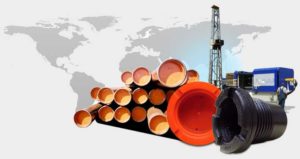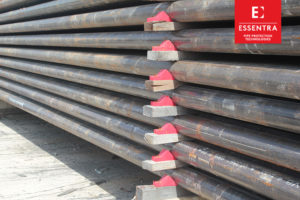Hydraulic fracturing, more commonly referred to simply as “fracking,” is a process using high-pressure injections of various chemical and water mixtures to widen fractures in rock layers.
Fracking has made numerous oil and gas wells economically viable.
Introduction to Fracking
Fracking is an industrial method implemented to increase, restore, or speed up the exodus of natural gas, petroleum, or water from natural reservoirs deeper in subterranean levels.
By providing a viable path connecting the well to a large and deep area of the reservoir, the natural resources being sought can be recovered from their target location at a much greater pace than would otherwise be attainable.
Shale Gas Extraction
Shale gas is one of the natural gasses extracted by the process of fracking, which makes possible the production of natural gas and oil from depths of 5,000–20,000 feet, or 1,500–6,100 meters. Shale tends to have an exceptionally low natural permeability; therefore, facilitating the advanced opening of these fractures is essential to extract gas (or petroleum) in worthwhile quantities and timeframes. Not surprisingly, typical shale gas yields generally fall off sharply after the first year or two.
Oil shale is a fine-grained sedimentary rock that is very rich organically. The shale rocks contain kerogen, a solid organic chemical compound mixture used to produce shale oil. Shale oil is not the same as tight oil, which is crude oil that occurs naturally in shale rocks.
Methods of Fracking
Fracking is done in vertical wells as well as horizontal wells. In any natural resource drilling – safety must be a high priority in a variety of ways. The many aspects include people, water, and the environment in general.
The International Organization for Standardization (ISO) has standards for products used in drilling and fracking.
The American Petroleum Institute (API) has standards for the industry, as well.
Organizations that comply and advocate for adhering to both sets of standards tend to be at the top of the list for success and respect.




